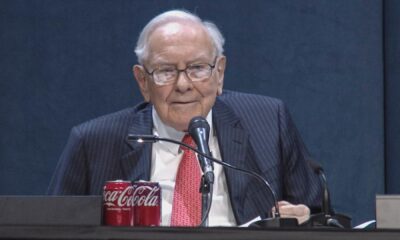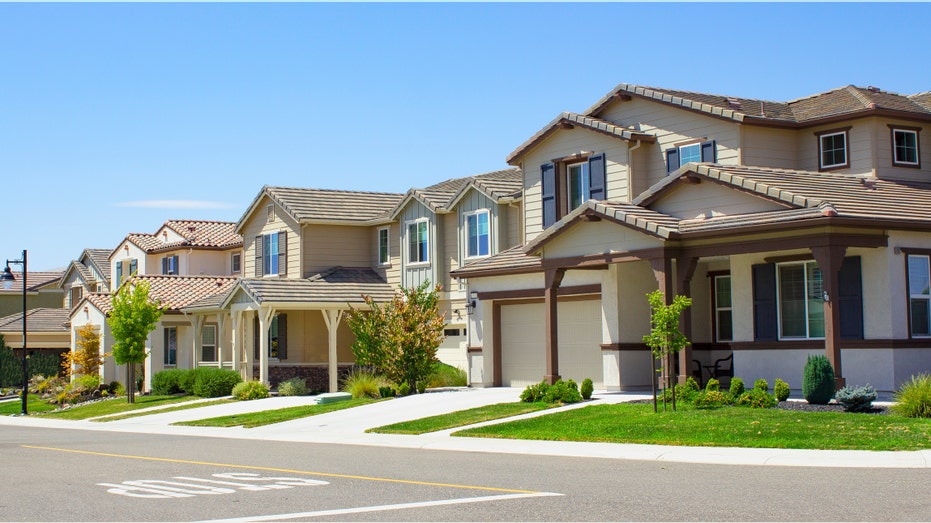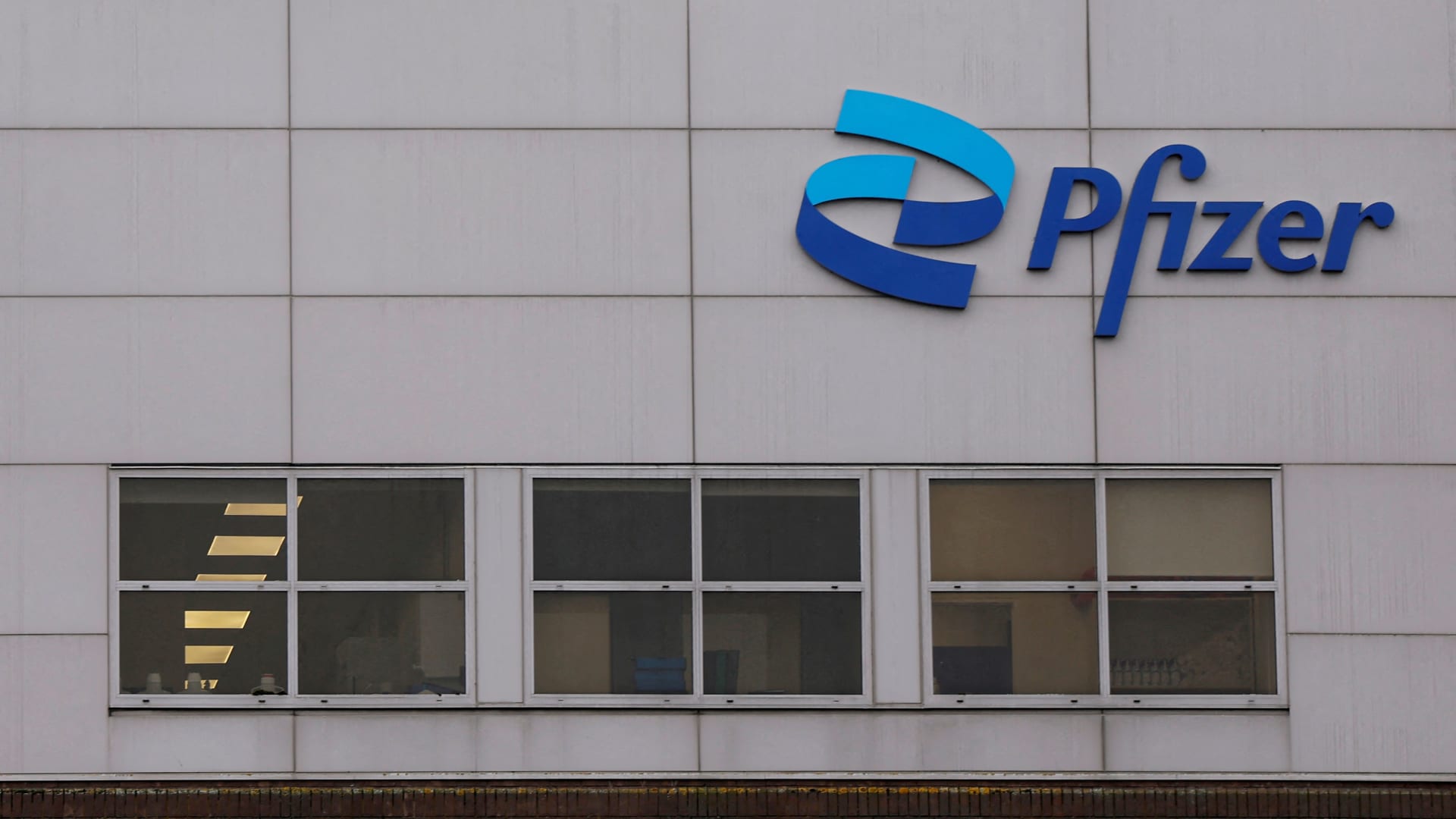‘Mansion Global’ host Katrina Campins discusses the best time to put property on the market on ‘The Claman Countdown.’
Americans have trillions of dollars of wealth locked up in their homes, and passing it on at death can get messy quickly.
The typical way of outlining who should get the house in a will can cause delays after death—so much so that most states have set up a new way for homeowners to document their wishes. It is called a transfer on death deed, and it has taken off in the past 15 years. New York and New Hampshire added the option last year.
These are blunt instruments, however, and they don’t account for all the complications of life. People make mistakes filling out the forms. Heirs get cut out inadvertently. The overall estate plan can conflict with the deed.
AMERICA’S HOUSING CRISIS: REALTOR.COM CEO SAYS THERE IS WAY TO SOLVE IT
Americans have trillions of dollars of wealth locked up in their homes, and passing it on at death can get messy quickly. (iStock)
And then it can go really wrong.
A Minnesota man named his niece as the beneficiary on one of these forms, but his ex-wife torched the home a few days after he died. That left his niece with just the land, and she lost a fight to get the insurance proceeds for the house. Courts ruled that he was the one insured but the form made the niece the sole owner, and the insurance didn’t cover her.
More people are having to decide whether to sell a home that has soared in value and pay a big capital-gains tax bill, or hold on to it to give to their children tax-free after they die.
Baby boomer homeowners hold $17 trillion in home equity. Three-quarters of them are planning to leave their current home or the proceeds from its sale to their children or other relatives, according to Freddie Mac.
Baby boomer homeowners hold $17 trillion in home equity. (iStock)
“There are so many pitfalls that you can step in,” said Frank Pugh, a lawyer in Leesburg, Va.
Traditionally, people with wealth write a will to outline what they want to happen with their property when they die. After death, a court then supervises the transfer of assets, a process known as probate that can be time-consuming and expensive.
To avoid probate, some people will set up a trust, and put their home and other assets in it, with detailed instructions for the trustee. But trusts, whereby the trustee distributes assets at death without court involvement, require attention to make sure assets are titled properly.
IS THE US HOUSING MARKET BECOMING A BUYER-FRIENDLY MARKET?
Transfer on death deeds were created as a no-fuss option to avoid probate. It is akin to listing a beneficiary on a 401(k) or on a payable-on-death form for a brokerage account. When the homeowner dies, the beneficiary named on the deed gets the house right away.
“It’s the difference between off-the-rack and custom tailoring,” said Thomas Gallanis, a professor at George Mason University’s law school who was the principal drafter for a model law on TOD deeds in 2009.
Rules vary by state, but in most cases the deed needs to be notarized and recorded at the local courthouse where the property is located.
Rules vary by state, but in most cases the deed needs to be notarized and recorded at the local courthouse where the property is located. (iStock / iStock)
Homeowners can revoke a transfer on death deed at any time—which is unlike adding someone to a deed as a joint owner.
Lawyers use these deeds often, typically in conjunction with a trust, said Jen Gumbel, an estate planner in Rochester, Minn. She has seen deeds being invalidated because do-it-yourself owners fill them out themselves, failing either to describe the property accurately or to get a spouse to sign off. “These are really technical documents,” she said.
States are still making tweaks to the deed laws. Minnesota updated its law last year in response to the case in which the owner’s ex-wife torched the house. Beneficiaries are now covered by insurance for up to 30 days, as long as the owner gave a copy of the deed and beneficiary information to the insurer before dying.
Things can get more complicated when there is outstanding debt on the property. Skyler Woodard, a 32-year-old welder, has been in a fight for the roughly 200-acre family farm in Nodine, Minn., since 2018, when his father died of cancer.
GET FOX BUSINESS ON THE GO BY CLICKING HERE
His parents bought the farm on a rent-to-own contract from his maternal grandparents in 1994. His father got it in a divorce settlement in 1999, and continued making the payments to the grandparents. His father named Woodard as beneficiary of the farm on a transfer on death deed, but the grandparents asserted it violated an anti-transfer provision in the contract and canceled the contract. The Minnesota Court of Appeals agreed with the grandparents, allowing them to take back the farm. The state Supreme Court declined to review the case.
“He was trying to give me the farm,” Woodard said. He is pursuing an unjust enrichment case against his grandmother now, because his father had made payments on the farm for 23 years. The lawyer for the grandmother had no comment.
A transfer on death deed might successfully pass along the house but still complicate how expenses, debts and taxes are paid, said Stacy Singer, national practice leader for trust and wealth advisory services at Northern Trust. Those are all things that can be spelled out in a will or trust but not in a deed.
CLICK HERE TO READ MORE ON FOXBUSINESS.COM
In one case that Singer handled, an 80-year-old man left his girlfriend his $700,000 house via a transfer on death deed. She got a surprise $25,000 tax bill to pay her share of the Illinois estate tax.
She probably could have avoided that tax bill if her boyfriend had just left her the house as a specific bequest in his will.

 Finance1 week ago
Finance1 week ago
 Finance1 week ago
Finance1 week ago
 Accounting1 week ago
Accounting1 week ago
 Economics1 week ago
Economics1 week ago
 Personal Finance5 days ago
Personal Finance5 days ago
 Personal Finance3 days ago
Personal Finance3 days ago
 Economics1 week ago
Economics1 week ago
 Personal Finance5 days ago
Personal Finance5 days ago












